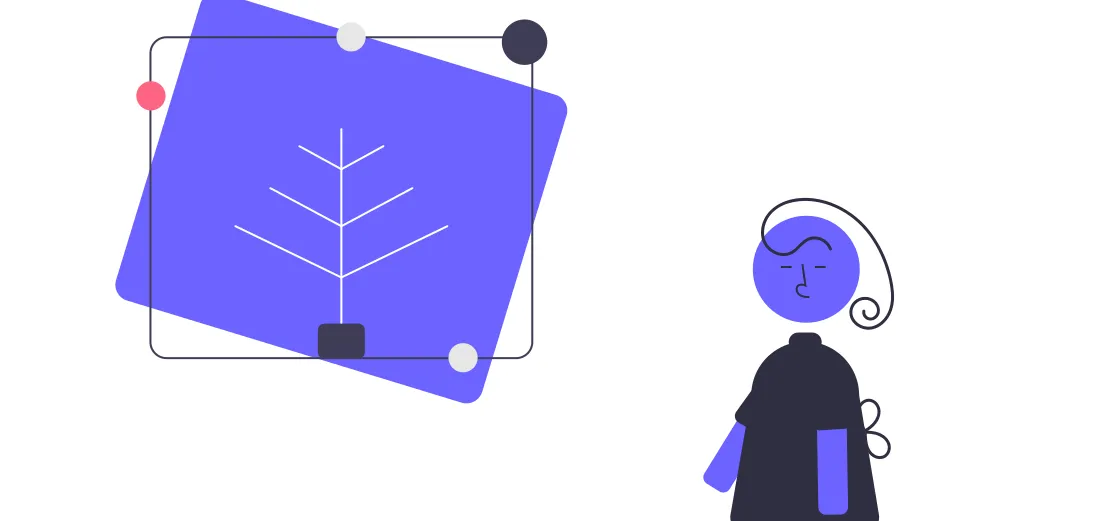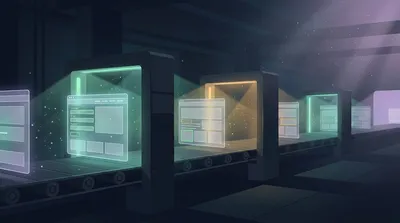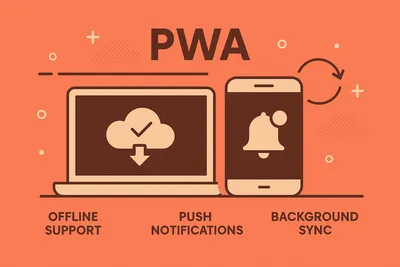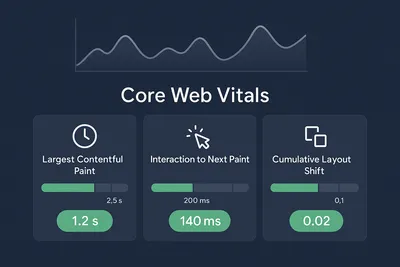Will Artificial Intelligence fully replace Web Developers?
The Future of Human Creativity in Tech

As the research and development of artificial intelligence keep picking up pace every day, businesses have started considering or already incorporated AI-powered solutions to boost efficiency and cut costs.
In recent days, we have seen people talk about how AI might replace a massive chunk of the workforce or take over processes that used to rely on individuals in that part of the trade. There’s a mixed bag of people who are worried about it, people who say everyone should be concerned, and then there are people who know that no matter how much it evolves, it can never replace people.
I am one of those people. I believe web development has no substitute for human expertise, just like many other fields. AI tools that have been flooding the internet are like a vehicle. They can help us get to various ends faster and with less effort.
However, when it comes to web development, it’s like climbing a mountain, where human expertise is necessary to navigate the tricky terrain and reach the summit successfully.
Limitations of artificial intelligence in web development
There’s no doubt that artificial intelligence can be super helpful in web development, especially in generating snippets for part of code, if not a full-blown project (at least at the time of writing this article), and testing.
noteWhen I revised this article, we already have a Python project on Github that can help build Chrome extensions and more. We provide a prompt with as many details as it needs, and viola. At least, that’s how it looks at the first glance. If we dive deeper into its usage, we’ll see it needs a lot of technical information to build a working solution.
Creativity, Intuition, and Emotional Intelligence
There are certain things that only we can bring to the table apart from technical knowledge and know-how. Things like creativity, intuition, and emotional intelligence. All of these are required when building products that people like to use. For example, when designing a website, we ensure it looks good and is easy to use while also considering what the users want and how they’ll interact with it.
User Experience design teams also put in a lot of detailed work building personas, understanding user sentiments, talking to potential users, and so much more.
Content Creation and Unique Voice
And when it comes to creating content, artificial intelligence can only go so far - capturing a human writer’s unique voice and style is tricky. Would an AI put a question like this in the middle of the paragraph? At least right now. I guess. (maybe in the future?). We put forward little things like these that are part of our thought processes - an animation we like or putting forward our brand’s sentiments in words or photographs.
Or, in simpler terms, intuition.
Importance of human intuition in creating websites
Empathy and Understanding User Behavior
Human empathy and intuition are essential for creating a website that genuinely resonates with its intended audience. While AI can provide insights based on data analysis or scour the internet and suggest what other people have done or have said what needs to be done. But to surpass people, it needs to be more capable of fully grasping the emotions and motivations behind user behavior.
It is critical to apprehend the audience’s needs and preferences; and where those overlap with what we can provide. More importantly, how that overlap can be used in a unique way that aligns with our vision.
Collaboration and Communication
Web development is a collaborative effort that demands communication and teamwork, which are skills that machines cannot replicate. Brainstorming ideas, discussing solutions, and providing feedback are critical to creating a successful website. Human emotions and market sentiments play a massive role in building any tech.
While AI can aid in some of these tasks, effective collaboration and communication with other humans is something only humans can provide. An LLM can suggest to someone what CSS to use by comparing it to the records it has seen before on how to finally center a div. Still, it doesn’t know if the div needs to be centered or looks centered with that piece of code it suggested.
The Irreplaceable Human Touch
In conclusion, while artificial intelligence can be helpful in specific areas of web development, it will always require a human touch. Our creativity, intuition, and emotional intelligence are irreplaceable in designing websites that genuinely connect with their target audiences.
Therefore, human involvement will remain an indispensable component of web development for the foreseeable future. All artificial intelligence would take away are all the tedious parts of our workflow so we can focus on things that matter. And also spend time doing what it fails to do correctly because, at the end of the day, it is a piece of software written by people.
Here’s to the coming age!




